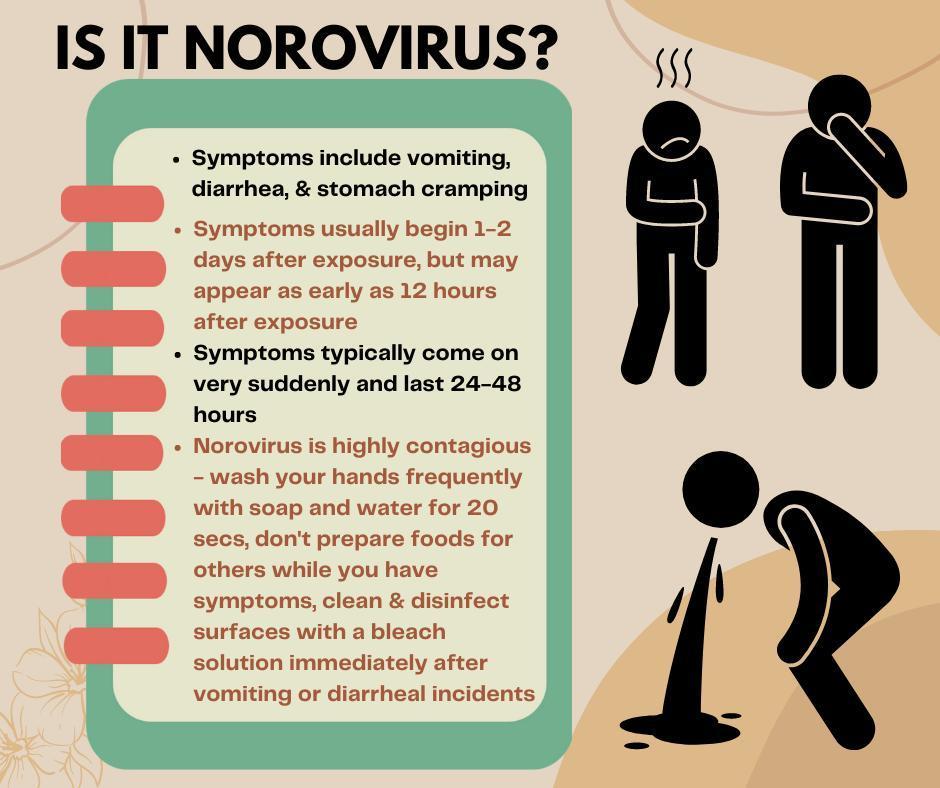How does norovirus spread?
Norovirus is one of the most contagious viruses causing intestinal infections, and it spreads in various ways.
The main route of transmission is the fecal-oral route, meaning the virus spreads through the feces of an infected person. This can occur through direct contact with an infected person, as well as through contaminated surfaces, food, or water. The virus is very resistant to environmental factors and can remain active on surfaces for a long time.
Airborne transmission is also significant, spreading the virus in enclosed, densely populated spaces such as hospitals, nursing homes, cruise ships, and schools. For this reason, norovirus can spread rapidly and cause epidemics.
The symptoms caused by norovirus start suddenly and can manifest as acute gastroenteritis. The main symptoms include:
Symptoms usually last 1-3 days, and while they are mild for many people, others may experience more severe discomfort. It is important to pay attention to the risk of dehydration, especially in children and older people, who may experience more serious complications. With frequent and intense vomiting and diarrhea, there is a risk of rapid loss of fluids and electrolytes, so it is recommended to drink plenty of fluids and, if necessary, take rehydration solutions.
It is important to note that while most cases are mild and not life-threatening, severe or prolonged symptoms should be discussed with a healthcare professional.

Prevention of norovirus includes several important aspects to reduce the spread of infection and prevent epidemics:
By paying attention to these prevention measures, the risk of norovirus spread can be significantly reduced, and outbreaks of infection in communities and enclosed spaces can be prevented.
Complications caused by norovirus are most commonly associated with dehydration due to severe vomiting and diarrhea, especially in children, older people, and individuals with immune deficiency conditions. Dehydration can lead to an electrolyte imbalance, which can cause serious health problems, such as hyponatremia (low sodium in the blood) or hypokalemia (low potassium in the blood). In severe cases, dehydration can lead to organ dysfunction, shock, or even death.
Additionally, particularly in older patients, other health problems may arise, such as kidney function impairment due to insufficient fluid intake. Repeated vomiting caused by the virus can sometimes lead to esophagitis or Barrett's esophagus, especially in prolonged infections.

Norovirus is also known as the "winter vomiting bug" because its outbreaks most commonly occur during the colder months, especially from November to April. This seasonal pattern is particularly noticeable in temperate climate countries. In winter, the virus can spread more quickly and easily due to several factors: people spend more time in enclosed spaces, where there is a higher likelihood of direct contact and airborne transmission of pathogens; also, lower temperatures and lower humidity can help maintain the viability of the virus. However, it is important to emphasize that while norovirus is more prevalent in the cold season, it can spread at other times of the year.
# noro virusas